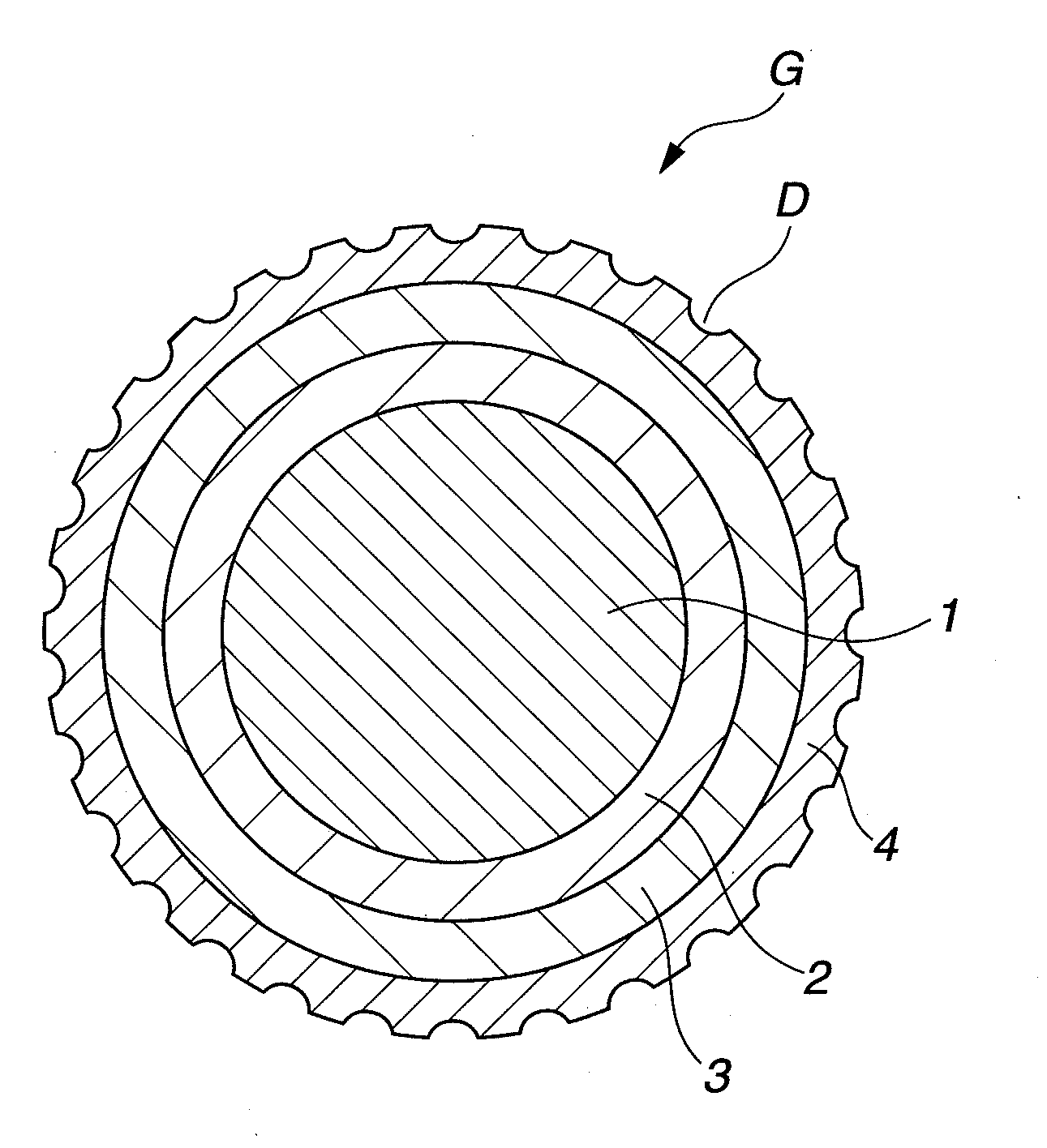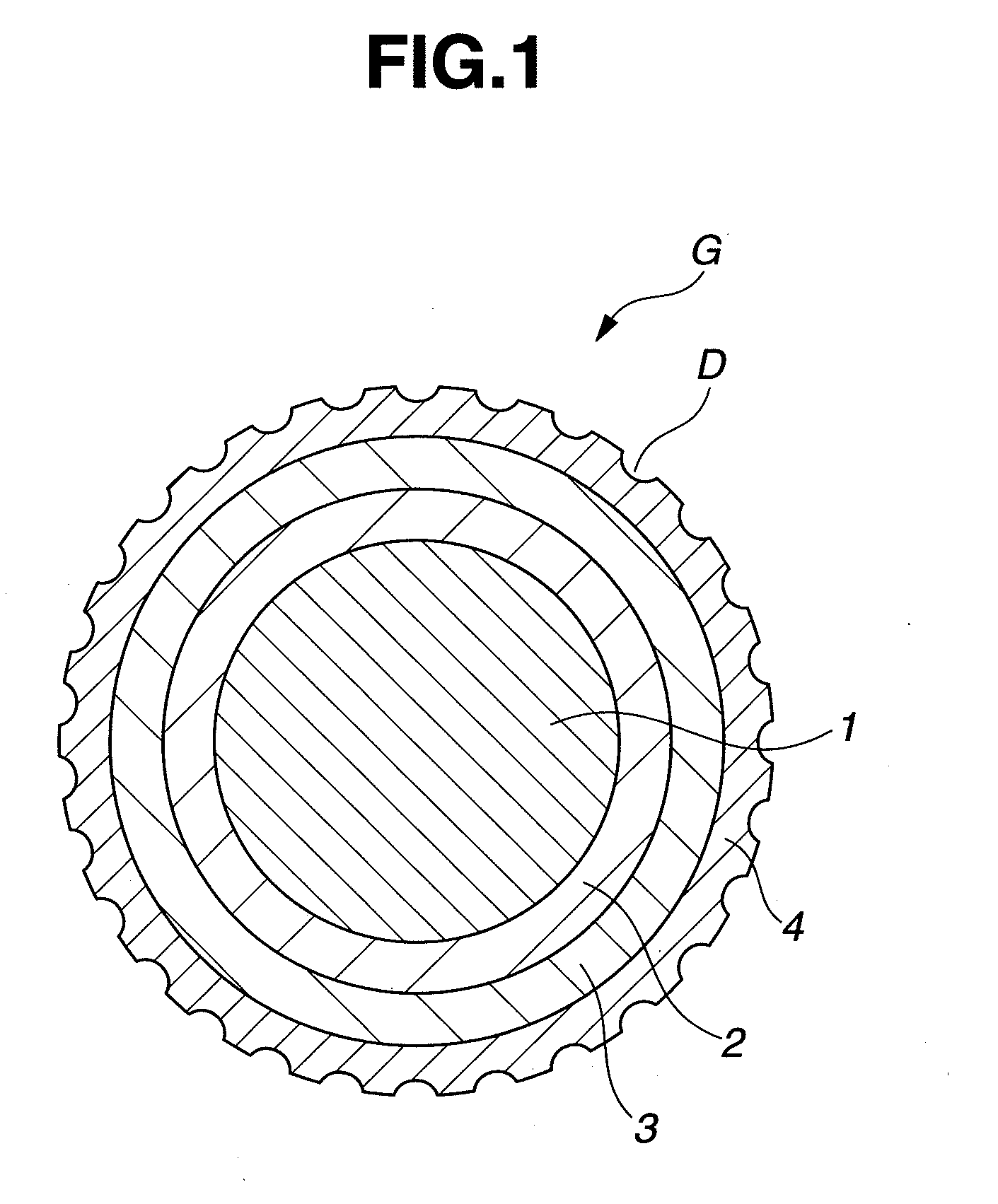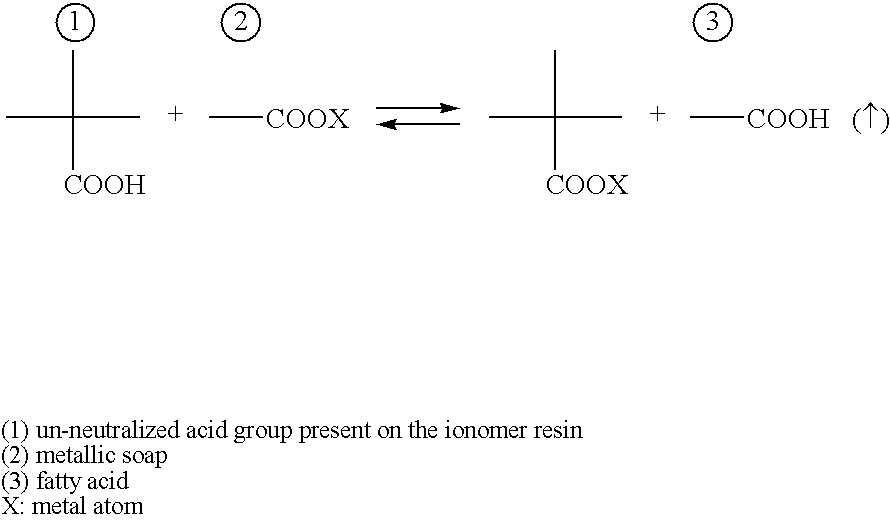Multi-piece solid golf ball
a golf ball and golf ball technology, applied in the field of multi-piece golf balls, can solve the problems of poor controllability of the poor spin receptivity of the golf ball on approach shots, and difficulty in achieving a sufficiently high ball initial velocity on shots taken with the driver, so as to improve the rebound of the ball, reduce the spin rate of shots, and increase the total distance traveled by the ball
- Summary
- Abstract
- Description
- Claims
- Application Information
AI Technical Summary
Benefits of technology
Problems solved by technology
Method used
Image
Examples
examples
[0197]The following Examples of the invention and Comparative Examples are provided by way of illustration and not by way of limitation.
examples 1 to 5
, Comparative Examples 1 to 6
[0198]Solid cores were produced by preparing core compositions using the formulations shown in Table 1 (examples of invention) and Table 2 (comparative examples) below, then molding and vulcanizing the compositions under vulcanization conditions of 155° C. and 15 minutes. Two cover layers—an innermost cover layer and an intermediate cover layer—were then injection-molded over these cores from formulations A, B, C, D and E shown in Table 3. Next, an outermost cover layer H was applied as shown below over the resulting three-layer spheres, thereby giving four-piece golf balls.
[0199]In Examples 1 to 5 and Comparative Examples 1 to 6, the various starting materials shown in column H of Table 3 (units: parts by weight) were kneaded in a nitrogen atmosphere with a twin-screw extruder to form cover resin compositions. These resin compositions were in the form of pellets having a length of 3 mm and a diameter of 1 to 2 mm.
[0200]The sphere encased by the intermed...
examples 6 to 8
[0242]The rubber composition (inner layer) formulated as shown in Table 4 was vulcanized at 155° C. for 17 minutes, following which the surface was trimmed, thereby producing an inner core layer. In a separate procedure, the rubber composition (outer layer) formulated as shown in Table 4 (parts by weight) was rendered into sheets while in an unvulcanized state, thereby producing a pair of outer core layer-forming sheets, and the sheets were shaped with a die having hemispherical protrusions. The outer core layer-forming sheets of unvulcanized rubber shaped by the mold cavity were then placed over the inner core layer and vulcanized at 155° C. for 15 minutes, following which the surface was trimmed, thereby producing a two-layer core composed of an inner layer and an outer layer.
[0243]Using formulations A, B and D in Table 3, two cover layers—namely, the innermost cover layer and the intermediate cover layer—were then injection-molded over the above-described two-layer core. Next, as...
PUM
 Login to View More
Login to View More Abstract
Description
Claims
Application Information
 Login to View More
Login to View More - R&D
- Intellectual Property
- Life Sciences
- Materials
- Tech Scout
- Unparalleled Data Quality
- Higher Quality Content
- 60% Fewer Hallucinations
Browse by: Latest US Patents, China's latest patents, Technical Efficacy Thesaurus, Application Domain, Technology Topic, Popular Technical Reports.
© 2025 PatSnap. All rights reserved.Legal|Privacy policy|Modern Slavery Act Transparency Statement|Sitemap|About US| Contact US: help@patsnap.com



